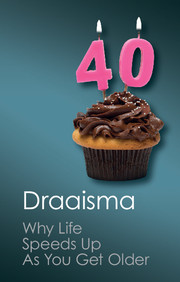Book contents
- Frontmatter
- Contents
- List of illustrations
- Acknowledgments
- 1 ‘Memory is like a dog that lies down where it pleases’
- 2 Flashes in the dark: first memories
- 3 Smell and memory
- 4 Yesterday's record
- 5 The inner flashbulb
- 6 ‘Why do we remember forwards and not backwards?’
- 7 The absolute memories of Funes and Sherashevsky
- 8 The advantages of a defect: the savant syndrome
- 9 The memory of a grandmaster: a conversation with Ton Sijbrands
- 10 Trauma and memory: the Demjanjuk case
- 11 Richard and Anna Wagner: forty-five years of married life
- 12 ‘In oval mirrors we drive around’: on experiencing a sense of déjà vu
- 13 Reminiscences
- 14 Why life speeds up as you get older
- 15 Forgetting
- 16 ‘I saw my life flash before me’
- 17 From memory – Portrait with Still Life
- Bibliography
- Index of names
5 - The inner flashbulb
Published online by Cambridge University Press: 05 July 2014
- Frontmatter
- Contents
- List of illustrations
- Acknowledgments
- 1 ‘Memory is like a dog that lies down where it pleases’
- 2 Flashes in the dark: first memories
- 3 Smell and memory
- 4 Yesterday's record
- 5 The inner flashbulb
- 6 ‘Why do we remember forwards and not backwards?’
- 7 The absolute memories of Funes and Sherashevsky
- 8 The advantages of a defect: the savant syndrome
- 9 The memory of a grandmaster: a conversation with Ton Sijbrands
- 10 Trauma and memory: the Demjanjuk case
- 11 Richard and Anna Wagner: forty-five years of married life
- 12 ‘In oval mirrors we drive around’: on experiencing a sense of déjà vu
- 13 Reminiscences
- 14 Why life speeds up as you get older
- 15 Forgetting
- 16 ‘I saw my life flash before me’
- 17 From memory – Portrait with Still Life
- Bibliography
- Index of names
Summary
If you are asked where you were on a day five or six years ago chosen at random, say 31 August 1997, what you were doing at the time, whom you were with and what the weather was like, the odds are that you will not be able to come up with the answer. And it is unlikely that you will find such exhortations as ‘try and remember, it was a Sunday’, or the like particularly helpful. That day, like most days a long time ago, seems to have been consigned to oblivion.
But all that changes with the knowledge that 31 August 1997 was the day on which you heard that Princess Diana had been killed in a car crash. If you think back to that moment, you probably still know who told you the news – a member of your family or a television or radio announcer, and you also remember where you were, who else was there, what you were doing, what your first reaction was, and how the people around you reacted.
Memories not only of the report of an event but also of the setting are known as ‘flashbulb memories’, an expressive phrase coined in 1977 by the psychologists Brown and Kulik. They observed that on receiving shocking news, people not only remembered the report itself but also details of the circumstances surrounding the report. The classic example is the death of President Kennedy.
- Type
- Chapter
- Information
- Why Life Speeds Up As You Get OlderHow Memory Shapes our Past, pp. 49 - 54Publisher: Cambridge University PressPrint publication year: 2012

